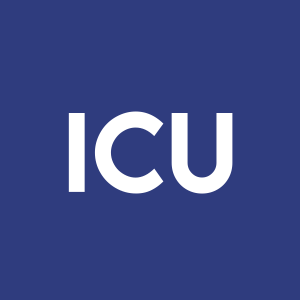SeaStar Medical Announces Activation of First Clinical Site in Pivotal Trial with Selective Cytopheretic Device in Critically Ill Adults with Acute Kidney Injury
Rhea-AI Summary
SeaStar Medical Holding Corporation (Nasdaq: ICU) has activated its first clinical site, Good Samaritan Regional Medical Center in Oregon, for the pivotal NEUTRALIZE-AKI trial. This trial aims to evaluate the Selective Cytopheretic Device (SCD) therapy's effectiveness for critically ill adults suffering from acute kidney injury (AKI). The SCD, which recently received FDA Breakthrough Device Designation, targets inflammation to potentially reduce mortality and dialysis dependency. The trial anticipates enrolling up to 200 patients across 30 U.S. sites, with primary endpoints focusing on 90-day mortality and dialysis dependency. Previous studies indicated up to 50% reduction in mortality among patients using the SCD, highlighting its promise in improving patient outcomes.
Positive
- FDA Breakthrough Device Designation awarded for SCD therapy.
- First clinical site for NEUTRALIZE-AKI trial activated swiftly.
- Previous studies showed up to 50% reduction in mortality with SCD.
Negative
- None.
News Market Reaction – ICU
On the day this news was published, ICU declined 2.07%, reflecting a moderate negative market reaction.
Data tracked by StockTitan Argus on the day of publication.
DENVER, April 19, 2023 (GLOBE NEWSWIRE) -- SeaStar Medical Holding Corporation (Nasdaq: ICU), a medical device company developing proprietary solutions to reduce the consequences of hyperinflammation on vital organs, announces the activation of Good Samaritan Regional Medical Center in Corvallis, Oregon, as the first clinical site in its pivotal NEUTRALIZE-AKI trial. This trial, expected to include up to 30 U.S. sites, is evaluating the safety and efficacy of SeaStar Medical’s patented, first-in-class, cell-directed Selective Cytopheretic Device (SCD) extracorporeal therapy in critically ill adults with acute kidney injury (AKI) requiring continuous kidney replacement therapy (CKRT).
“We recently received FDA approval to begin this pivotal trial and activated the first clinical site in record time, with many more sites expected to come onboard in the near term,” said Kevin Chung, MD, Chief Medical Officer of SeaStar Medical. “Previous clinical studies with the SCD have demonstrated reduced mortality and dialysis dependency in these critically ill patients, and we look forward to rapid enrollment of eligible patients into the NEUTRALIZE-AKI trial to validate these results.”
“We are honored to be the first clinical site activated in the NEUTRALIZE-AKI clinical study and are eager to evaluate the SCD therapy’s potential to improve outcomes for these critically ill patients,” said Brian Delmonaco, MD, FACEP, Medical Director of Samaritan Health Services Pulmonology and Critical Care Medicine and the principal investigator for Good Samaritan Regional Medical Center.
Four non-COVID completed studies evaluating the safety and feasibility of the SCD in adults and pediatric patients with AKI requiring CKRT showed Day 60 reductions in mortality of up to
The NEUTRALIZE-AKI (NEUTRophil and monocyte deActivation via SeLective CytopheretIic Device - a randomiZEd clinical trial in Acute Kidney Injury) pivotal trial is expected to enroll up to 200 patients. The trial’s primary endpoint is a composite of 90-day mortality or dialysis dependency of patients treated with SCD in addition to CKRT as the standard of care, compared with the control group receiving only CKRT standard of care. Secondary endpoints include mortality at 28 days, ICU-free days in the first 28 days, major adverse kidney events at Day 90 and dialysis dependency at one year. The study will also include subgroup analyses to explore the effectiveness of SCD therapy in AKI patients with sepsis and acute respiratory distress syndrome.
An estimated six million American adults and children are diagnosed with AKI each year, and more than 200,000 require CKRT as part of their care. In 2022 the SCD received FDA Breakthrough Device Designation for adult use. This designation is awarded to a therapy to treat a serious or life-threatening condition with preliminary clinical evidence indicating the therapy may demonstrate substantial improvement on clinically significant endpoints over available therapies. Breakthrough therapies receive many benefits, including a commitment by the FDA to expedite development and review.
About Good Samaritan Regional Medical Center
Established in 1948, Good Samaritan Regional Medical Center is one of five Level II trauma centers in Oregon. It is the largest of the five hospitals affiliated with Samaritan Health Services, a nonprofit network of hospitals, clinics, health services and health plans caring for more than 265,000 residents in the mid-Willamette Valley and central Oregon Coast. Its mission is building healthier communities together and is evident in the care it provides, its community partnerships, commitment to participation in research and training future generations of clinicians through its Graduate Medical Education program.
About Hyperinflammation
Hyperinflammation is the overproduction or overactivity of inflammatory cells that can lead to damage of vital organs. It occurs when the body overproduces inflammatory effector cells and other molecules that can be toxic, damaging to vital organs and result in multi-organ failure and even death. This is known as the cytokine storm. Unlike pathogen removal and other blood-purification tools, the SCD selectively targets the most highly activated proinflammatory neutrophils and monocytes. The Company has observed that these most highly activated immune cells are turned off in a low calcium environment. The SCD therapy mimics nature by creating a unique micro-environment, attracting these highly activated effector cells and neutralizing them in such an environment. These cells are then returned back into the body through the blood, and the body is signaled to focus on repair.
About SeaStar Medical
SeaStar Medical is a medical technology company that is redefining how extracorporeal therapies may reduce the consequences of excessive inflammation on vital organs. SeaStar Medical’s novel technologies rely on science and innovation to provide life-saving solutions to critically ill patients. The Company is developing and commercializing cell-directed extracorporeal therapies that target the effector cells that drive systemic inflammation, causing direct tissue damage and secreting a range of pro-inflammatory cytokines that initiate and propagate imbalanced immune responses. For more information visit www.seastarmedical.com or visit us on LinkedIn or Twitter.
Forward-Looking Statements
This press release contains certain forward-looking statements within the meaning of the “safe harbor” provisions of the Private Securities Litigation Reform Act of 1955. These forward-looking statements include, without limitation, SeaStar Medical’s expectations with respect to the timing of regulatory approval of its products, the expected timing on enrollment, generation of study results, submission of PMA and other corporate milestones, the ability of SCD to treat patients with AKI, and the potential benefits of SCD to treat other diseases. Words such as “believe,” “project,” “expect,” “anticipate,” “estimate,” “intend,” “strategy,” “future,” “opportunity,” “plan,” “may,” “should,” “will,” “would,” “will be,” “will continue,” “will likely result,” and similar expressions are intended to identify such forward-looking statements. Forward-looking statements are predictions, projections and other statements about future events that are based on current expectations and assumptions and, as a result, are subject to significant risks and uncertainties that could cause the actual results to differ materially from the expected results. Most of these factors are outside SeaStar Medical’s control and are difficult to predict. Factors that may cause actual future events to differ materially from the expected results include, but are not limited to: (i) the inability to recognize the anticipated benefits of the business combination with LMAO, which may be affected by, among other things, competition and the ability of the post-combination company to grow and manage growth profitability and retain its key employees, (ii) costs related to the business combination, (iii) the outcome of any legal proceedings that may be instituted against SeaStar Medical following the business combination, (iv) the ability to maintain the listing of its securities on NASDAQ, (v) the ability to implement business plans, forecasts, and other expectations after the completion of the business combination, and identify and realize additional opportunities, (vi) the risk of downturns and the possibility of rapid change in the highly competitive industry in which SeaStar Medical operates, (vii) the risk that SeaStar Medical and its current and future collaborators are unable to successfully develop and commercialize its products or services, or experience significant delays in doing so, including failure to achieve approval of its products by applicable federal and state regulators, (viii) the risk that SeaStar Medical may never achieve or sustain profitability; (ix) the risk that SeaStar Medical may need to raise additional capital to execute its business plan, which may not be available on acceptable terms or at all; (x) the risk that third-parties suppliers and manufacturers are not able to fully and timely meet their obligations, (xi) the risk of product liability or regulatory lawsuits or proceedings relating to SeaStar Medical’s products and services, (xii) the risk that SeaStar Medical is unable to secure or protect its intellectual property, and (xiii) other risks and uncertainties indicated from time to time in SeaStar Medical’s registration statement on Form S-4, as amended (File No. 333-264993), including those under the “Risk Factors” section therein and in SeaStar Medical’s other filings with the SEC. The foregoing list of factors is not exhaustive. Forward-looking statements speak only as of the date they are made. Readers are cautioned not to put undue reliance on forward-looking statements, and SeaStar Medical assume no obligation and do not intend to update or revise these forward-looking statements, whether as a result of new information, future events, or otherwise.
Contacts:
Media
PSC Consulting
Patty Caballero
(973) 348-5055
patty@pscconsulting.net
Investors
LHA Investor Relations
Jody Cain
(310) 691-7100
Jcain@lhai.com
# # #








